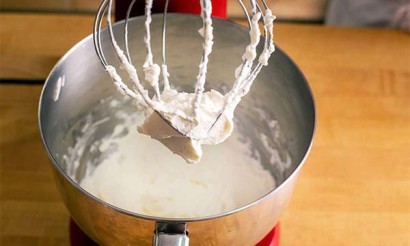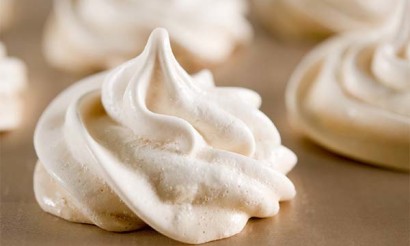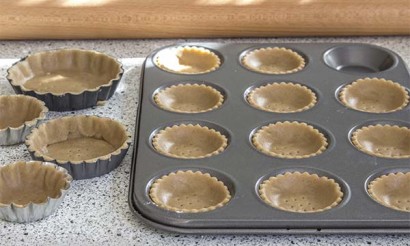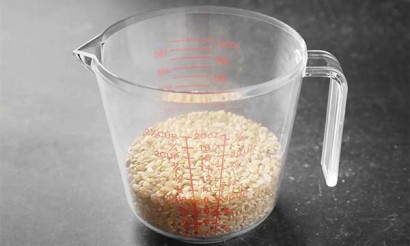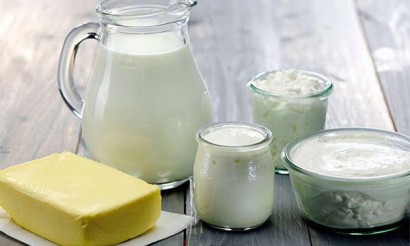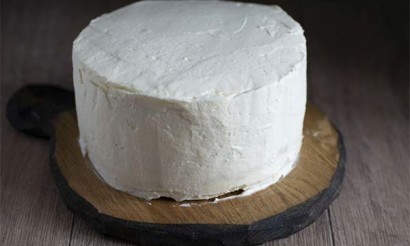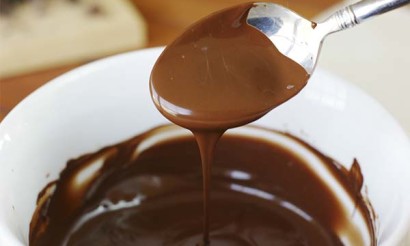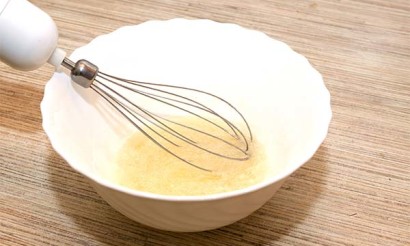How to cook eggs so they peel well
Boiled eggs are one of the most popular and favorite breakfast foods both in Russia and in general in most countries of Europe and America. The obvious advantages are nutritious, healthy (the product is rich in proteins, lipids and B vitamins) and fast cooking, which is not unimportant in today's pace of life.
Although boiled eggs are certainly one of the most basic dishes, so much so that it cannot be ranked even among the basics of cooking, it still has its own nuances and little tricks.
What to pay attention to before cooking
The first thing to pay attention to is, of course, the freshness. To do a simple home test for freshness, dip the eggs in water. The fresher the egg, the heavier it is. Therefore, a perfectly fresh product will immediately go to the bottom. Under-submerged or floating eggs should not be eaten. Another way is to shake it near the ear. If the egg is fresh, you will not hear any sounds; if not, you will hear a splashing and fluttering when you shake it. Needless to say, under no circumstances should you eat a product that has an unpleasant odor or an unhealthy coating.
Eggs with damaged shells must be cooked immediately. Otherwise it is better to throw them away - you can not store such a product.
In no case can you store washed eggs. You can wash them only immediately before cooking. The shell is covered with a protective layer on top, which helps to resist external influences and the entry of microorganisms. Thus, washing eggs before storing them reduces their shelf life.
How to boil eggs properly so that they are easy to peel
The best way to clean eggs is to leave them in the refrigerator for 1-2 days. The freshest eggs still have a very strong bond between the shell and the film, so it is difficult to peel them.
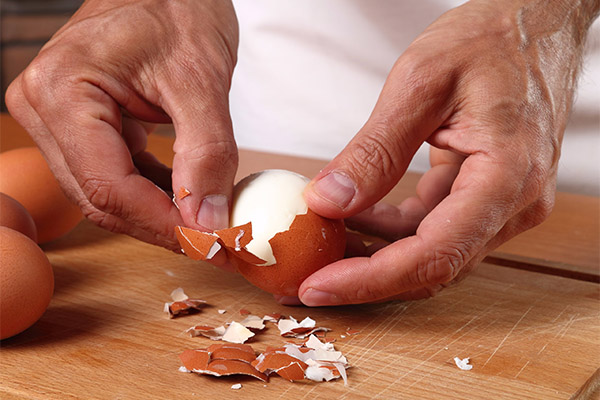
Immediately after the end of cooking, you need to put them in cold water and hold in it for 2-3 minutes, but not longer, because after a longer time the yolk can turn blue, which looks rather unaesthetic (if you, for example, cooked it for a salad or any other dish where appearance is important). This is equally true for both chicken and quail eggs.
Chicken
There are three known methods of cooking: "hard-boiled," "poached," and "soft-boiled."
- In "hard-boiled" eggs, the contents are cooked completely inside and become dense and shaped. This method is suitable for adding to other dishes (salads, soups, etc.) and for those who do not like semi-liquid, shaky egg whites. Hard-boiled eggs come out after 5 minutes or more of boiling.
- Hard-boiled eggs have only lightly set contents, but for the most part they remain in a semi-liquid state, of a very delicate consistency. To achieve this result, boil the egg for no more than two minutes.
- Eggs boiled "in the bag" are characterized by a fully cooked white and semi-dense yolk. This is, by the standards of real gourmets, is the "egg aerobatics". To achieve this, you should boil eggs for 2 to 3 minutes after boiling, depending on their size.
Also, so that the chicken eggs do not crack when boiling, you can add baking soda (1 teaspoon per 400-500 ml of water) to the water. This will also facilitate the cleaning, as it raises the pH of the protein, because of this film, lining the shell from the inside, begins to depart from the protein more easily.
Quail
The principle of preparation is the same as for chicken eggs. Put them in a pot and pour cold water, bring to the boil and boil for 3-4 minutes for hard-boiled and 2 minutes for soft-boiled eggs. To avoid cracking, sometimes 2-3 drops of vinegar are added to quail eggs when boiling.
A quail egg is much smaller than a chicken egg, so if it cracks, its contents will leak out almost completely. Also, they should not be cooked immediately after being taken out of the refrigerator. Their shell is thinner than that of chicken eggs, so it is less able to withstand temperature changes, so in this case the eggs may crack when boiled.
After the eggs are boiled, they should also be dipped into cold water and held in it for a few minutes.
Quail eggs can also be cooked in a special way, which is known as "poached eggs". To do this, bring the water to a boil, add a teaspoon of vinegar (or lemon juice) and half a tablespoon of salt and some pepper, and then gently beat the egg in it. You can beat the egg beforehand, then carefully pour it into the boiling water. Then boil it for 3-4 minutes.
How to boil eggs so they don't crack
To prevent eggs from cracking when boiled, you should boil them in salted water (about 2 teaspoons of salt per 200 ml of water). This will also help prevent the protein from leaking too much in case there are cracks in the shell that you didn't notice before. Protein that has leaked out will not spread all over the pan, but will collect in a compact lump.
How to peel eggs properly
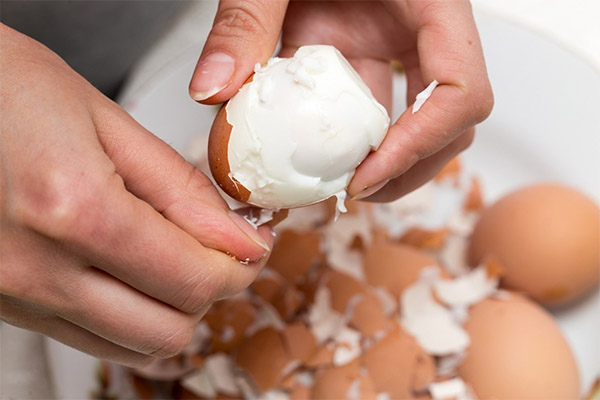
Remember the famous bitter argument between "sharp-tongued" and "dull-tongued" Swift? The latter were quite right, because it is more convenient to start cleaning eggs from the blunt end, because there is an air chamber. Therefore, it is more convenient to pick up the first shell and start cleaning from there. Sometimes the air chamber can be located in an atypical place, on top or on the side, but most often it is located exactly at the bottom.
Why the shell doesn't peel properly
As mentioned above, the freshest eggs are the worst to clean. The fact is that over time, during storage, the contents gradually shrinks and begins to slowly separate from the walls. Therefore, it is better to cook eggs, which have been kept in the fridge for a day or two. This will not affect their freshness and quality, but it will make the subsequent cleaning much easier.
To facilitate the cleaning process, you can use a little trick. After keeping the eggs in cold water after cooking, drain it halfway, then close the pot with the lid and shake it vigorously in a circle several times. When you hit the walls, the egg shell will crack and the cold water will get inside, making it much easier to clean the eggs.
To make the egg easier to peel, you can beat it lightly on all sides by tapping it on the table. Quail eggs can be lightly rolled between the palms of your hands, then the shell will be removed along with the film in a single strip, easily and quickly.
Interesting facts about eggs
- Since bird eggs are essentially one huge egg, they are full of nutrients and beneficial substances. That is why they satisfy hunger so well, because these substances are designed to nourish the embryo. In addition to chicken eggs, quail eggs, ostrich eggs, duck eggs, goose eggs and turkey eggs, as well as the eggs of some reptiles, such as turtles, are actively consumed.
- Hen eggs contain a very large amount of proteins and enzymes, vitamins A and B group, glucose, fatty acids, and the caloric value of the yolk is more than 352 kcal per 100 grams.
- Quail eggs are recently gaining popularity - they are recognized as a dietary product because of its low caloric content and are very popular among those concerned about good nutrition and a healthy lifestyle, as well as people struggling with excess weight. Quail eggs are rich in vitamins A, D and B12, as well as trace elements such as calcium, potassium, iron and magnesium.
- For European countries turtle eggs are considered exotic and very rare, but in countries located on the shores of the Atlantic and Pacific Oceans, it is quite common and usual food. In taste, calories and composition, these eggs are similar to chicken eggs. In the last 15 years, due to the decline in numbers of some species, egg collection has been prohibited in many places, and the beach areas where the turtles dig their holes are taken under protection during the breeding season. These areas are completely closed to visitors, and egg collection is considered smuggling and prosecuted.
Did you know:
… That everything starts with an egg?
The tradition of starting breakfast with boiled eggs has been around since ancient Rome. The Romans even had a saying "ab ovo" - from the egg, i.e., "from the beginning," from "the basics.
...that you can see a fetus during breakfast?
On the surface of the yolk of even an unfertilized egg, one can see a small dark spot - the blastodisc, or germinal disc, which represents the embryo itself, that is, the small cluster of cells from which the life of the future organism begins.
...that you can tell by the color what the chicken was eating?
The color of the yolk can tell you something about what the hen that laid the yolk was eating. Surely many people have noticed that eggs with a darker and richer color on the yolk are much tastier. This color indicates that the chicken was fed a variety of feed and healthy greens.
...that eggs can be baked?
Eggs can be not only boiled or fried - they can be baked either whole (in special pots with water) or without the shell, in the oven or even on the fire, just by burying them in hot ash.
...that you can wash your hair with eggs?
There are many recipes for homemade shampoos and strengthening masks based on eggs. Whipped into a foam white washes the hair well, and the substances in the yolk strengthen and nourish the roots of the hair, returning them to their natural shine.
...that opera singers drink raw eggs?
Indeed, this practice is still popular with many vocalists. Eggs don't directly affect the voice. But they soften and moisten the vocal cords, giving them elasticity, so the cords are less likely to be injured during tension. This is largely due to lutein, which is also a strong antioxidant, but is destroyed at high temperature, which is why eggs for this purpose are eaten raw. Of course, they are carefully treated beforehand, in order to avoid salmonella contamination.
...that lions destroy birds' nests?
Eggs are not only a great breakfast for us, many animals also like to eat them and replenish their energy at the beginning of the day. For example, Indonesian striped monitor monkeys dig up turtle eggs, and meerkats eat the eggs of guinea fowls if they get the chance. Well, lions are known to destroy ostrich nests, of course, in the absence of their parents. And though it requires a lot of skill, it's worth it because 2-3 ostrich eggs are enough to satisfy the hunger of a young lion.
...that reptile eggs are soft?
Reptile eggs - turtles, lizards, snakes, crocodiles - are covered with a thicker, more leathery shell than the shell. Sometimes it may be covered with a layer of lime on top. Since temperature and humidity are important for the development of reptile embryos, they must be better protected from the external environment than bird embryos.
...that Asian countries eat eggs along with chicken?
In Southeast Asian countries (Vietnam, Laos, Thailand, Cambodia, the Philippines) a dish called balut, a boiled duck egg with a partially developed embryo, is quite popular.
«Important: All information on this site is provided for informational purposes only. for informational purposes only. Before applying any recommendations, please consult with a health care professional. specialist before using any of the recommendations. Neither the editors nor the authors shall be liable for any possible harm caused by materials."


